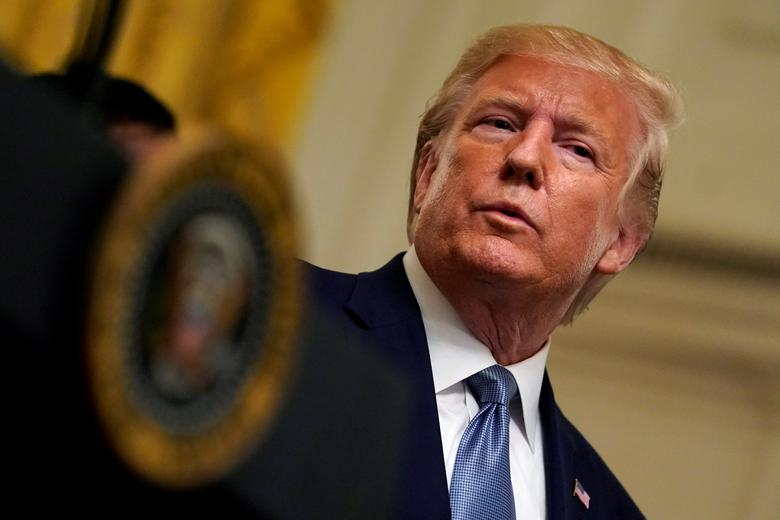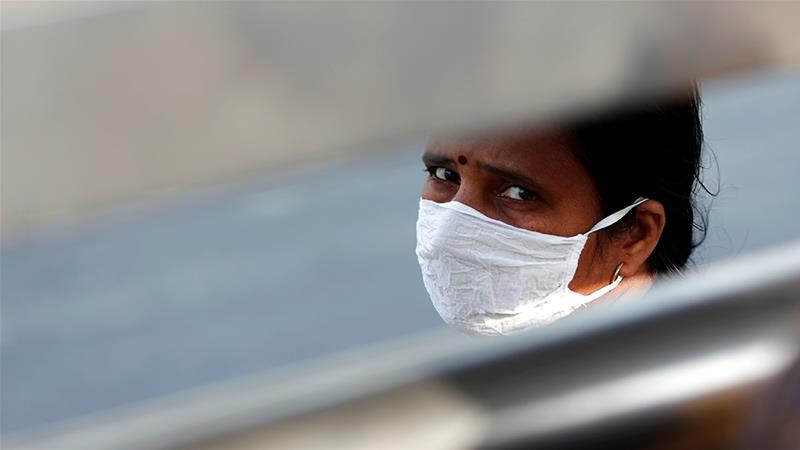
Editor's note: As 2020 began, few imagined a virus would rise up that modern medicine couldn't quickly cure. With the coronavirus pandemic now engulfing over 200 countries and regions, threatening to derail the global economy and plunging many lives into uncertainty, it's reshaping the world landscape with socioeconomic, political and psychological impacts. CGTN is launching a series on how the pandemic will change the world in every dimension.
This is the second article, contributed by Zhao Minghao, a senior research fellow at the Charhar Institute and an adjunct fellow at the Chongyang Institute for Financial Studies at Renmin University of China. The views expressed here belong to the author. You can read the first analysis here.
As the novel coronavirus continues to spread globally, the question around "how the pandemic will shape the world" has received much attention. As UN Secretary General Antonio Guterres said, this is the greatest test for humanity since WWII. So far, the disease has represented an overwhelming public health challenge, likely to trigger an economic recession and social unrest – all of which constitute a complicated crisis which has far-reaching implications for the world order.
First of all, the pandemic will accelerate the reshaping of globalization. It has become clear that what has happened recently is going against the premises of globalization. Director of Chatham House Robin Niblett even went as far as comparing it to "the straw that breaks the camel's back of economic globalization."
However, globalization won't simply stop due to the coronavirus. Rather, the pandemic would push globalization to become more localized and regionalized as it has exposed several key weaknesses of the long and complex global supply chain that we have relied so much on.

U.S. President Donald Trump attends the Young Black Leadership Summit at the White House in Washington, U.S., October 4, 2019. /Reuters
U.S. President Donald Trump attends the Young Black Leadership Summit at the White House in Washington, U.S., October 4, 2019. /Reuters
In the post-COVID-19 era, many companies and especially Western enterprises would rely more on localized operations and bring businesses to friendly countries. Due to the advances made in automation in recent years, cost of labor would play an increasingly diminished role for companies to decide where to manufacture these products. The pandemic will also accelerate the development of robotics and artificial intelligence technologies. Besides, this trend of localization would also improve companies' reaction to the needs of consumers and become more adaptable and versatile.
Secondly, this pandemic will deepen countries' understanding of the relationship between economic activities and national security. In recent years, under U.S. President Donald Trump's "America first" policies, an increasing number of realms including 5G have come under scrutiny in the name of national security. Since the coronavirus outbreak begin, American and European politicians have urged for a reexamination of the supply chains for critical resources such as medicine and argued for a reduced reliance on China and other countries.
Moreover, countries will likely tighten control on hi-tech flow as they become more intertwined with national security. On one hand, countries around the world have adopted technology such as big data and massive collection of human data in their attempt to control the spread of the disease. This has triggered privacy concerns for many. On the other hand, the world economy will become more reliant on digitization as world powers inevitably battle for the high ground of new technologies including 5G and artificial intelligence.
Thirdly, the virus's effect on geopolitics can't be overlooked. International collaboration has been largely hindered by geopolitical conflicts, no matter if it was the oil price war between Russia and Saudi Arabia or the U.S. banning import of medical supplies to its allies. Trust between major world powers has been largely insufficient, and this is especially illustrated between China and the U.S. The halted U.S. economy might cost Trump's reelection in 2020, but it is clear the U.S.'s attitude toward China won't change much if Democratic candidate Joe Biden wins the presidency.

Some economists say the plan may not be enough to support the country, and the lockdown could cost India dearly in terms of economic growth /Reuters
Some economists say the plan may not be enough to support the country, and the lockdown could cost India dearly in terms of economic growth /Reuters
In addition, the pandemic reveals an inevitable decline in U.S. leadership. The Trump administration is not only slow in orchestrating a response but reluctant to coordinate international efforts as it used to do in past global emergencies. Kori Schake, deputy director-general of the International Institute for Strategic Studies, wrote that the coronavirus pandemic is a "leadership test." "The United States will no longer be seen as an international leader because of its government's narrow self-interest and bungling incompetence," he wrote in the Foreign Policy.
Likewise, the European Union (EU) also underperformed in the coronavirus outbreak. EU member states closed borders to each other and scrambled for medical resources. Italy and other countries that took a harder hit from the outbreak failed to get timely assistance from the EU; Germany and the Netherlands are unwilling to provide more funding to Southern European countries; Central and Eastern European countries like Poland and Hungary are loath to comply with Brussels. It seems that in the post-COVID-19 era, the EU will not fall apart but will face a crisis threatening its integration.
The enormous geopolitical impacts deriving from the pandemic will also be felt in emerging and developing countries, which have been struggling to gain growth and restructure their economies since the 2008 financial crisis. According to a recent UN report, nearly 90 billion U.S. dollars in investments have flowed out of emerging markets during the outbreak. African and Latin American nations will, noted the Economist, be much afflicted by the relentless virus.
The pandemic has actually brought about a crisis of both state and global governance. A lack of equal access to social insurance and healthcare are prompting governments to reconsider their political and socioeconomic institutions.